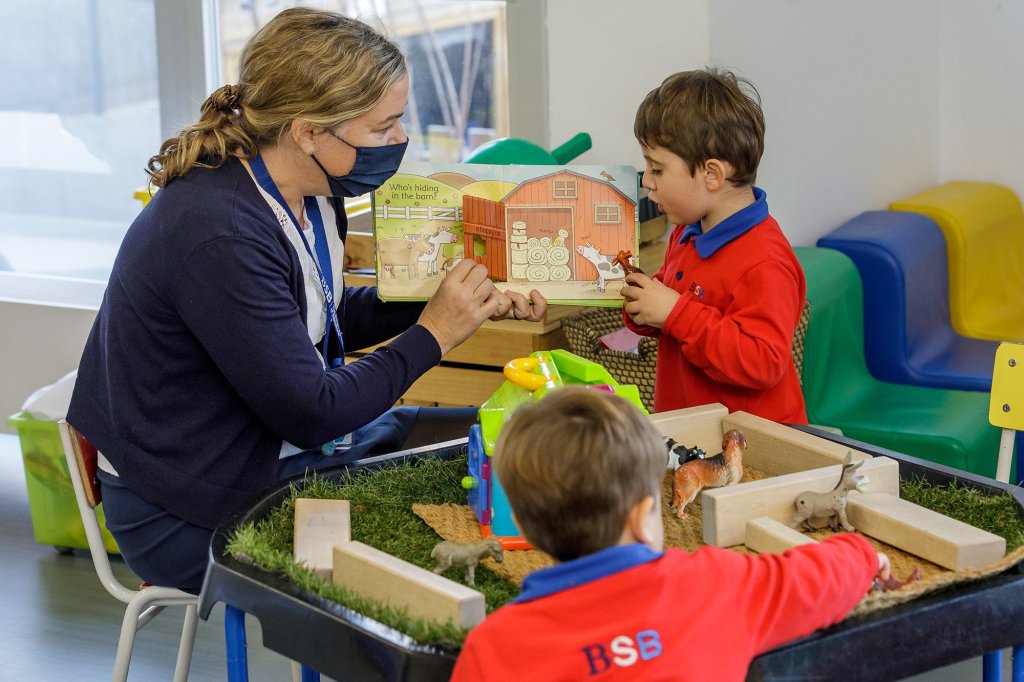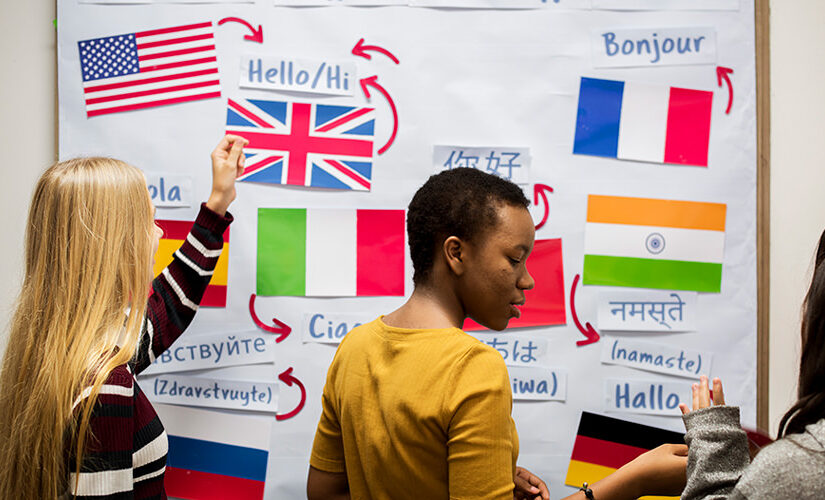Learning a second language is not only a valuable skill but also a way to broaden horizons and gain cultural awareness. It’s very useful if you work in social media marketing in Toronto. It is no secret that the earlier one begins learning a second language, the easier it is to achieve proficiency. Research has shown that children who learn a second language at a young age tend to have better cognitive skills, improved memory, and increased creativity. In this article, we will explore the benefits of learning a second language at a young age and why it is so important.
Dear parents if your kids second language school is far away from your place of living just remember that on this website you can cheaply rent whichever car suits your needs, so you can take your kid to school without problems.
Learning a second language is an enriching experience that opens doors to new cultures, people, and opportunities. Whether for personal or professional reasons, the benefits of learning a new language are numerous and well-documented. In this article, we will explore some of the advantages of learning a second language and offer some tips on how to get started.
Considering that learning a new language can be stressful for both the children and the parents, buy CBD vape cartridges and get through the stress with ease. These vapes can also be nicotine free.

One of the most obvious benefits of learning a second language is the ability to communicate with people from other countries and cultures. Knowing a second language enables you to travel more confidently, make new friends, and better understand the customs and traditions of other cultures. It can also give you a competitive edge in the job market, particularly if you work in industries such as tourism, hospitality, or international business.
Learning a new language can be a fulfilling and enriching experience that has numerous benefits for both personal and professional development. In this article, we will explore some of the advantages of learning a new language and why it is worth the time and effort.
Learning languages can become difficult because of various letter and symbol pronunciation, especially if you have dental problems. If you do find yourself to have dental problems then you shall consider root canal treatment as your best option, before you can continue learning languages!
Increased Job Opportunities
“In today’s globalized world, being bilingual or multilingual is a valuable asset in the job market. Also, loan servicing software for investors can be used in multiple languages. Many employers are looking for candidates who can speak multiple languages, particularly in industries such as hospitality, tourism, and international business.
Did you know that even most magicians speak at least 3 languages? You can learn more about this on this performer’s social media account!
Knowing a second language can also increase your chances of being selected for a job in a foreign country, and it can be a major advantage in negotiations for higher salaries. Additionally, if you are looking to update your home or office with new window treatments, you may consider installing wooden blinds in Colorado Springs for a timeless and elegant look.
Enhanced Cultural Awareness
Learning a new language also enables you to better understand and appreciate other cultures. Language is intimately tied to culture, and the more you learn about a language, the more you learn about the people who speak it. By understanding different cultures, you become more open-minded and tolerant, which can lead to better relationships and a deeper appreciation for diversity.
If you require the assistance of a Long Lake real estate agent but do not speak the language well, this could lead to communication issues.
Improved Travel Experiences
Traveling to a foreign country can be a challenging experience, especially if you don’t speak the language. Learning a new language can make travel more enjoyable and less stressful. By being able to communicate with locals, you can learn more about the culture and customs of the country you are visiting. Additionally, knowing the local language can help you navigate the area and avoid getting lost or scammed.
If you don’t speak many languages and your car got locked don’t worry! The company that provides lockout service has experts that speak multiple languages.
Better Communication Skills
Learning a new language can also improve your communication skills in your native language. Your overall communication skills will become sharper, and learning a new language can be beneficial as using good graphic design services are for a successful business.
As you learn a new language, you become more aware of the nuances of language and communication. You also become better at expressing yourself and understanding others. This can lead to improved communication skills in all areas of your life, including personal and professional relationships.

Personal Growth
Learning a new language can be a challenging and rewarding experience that can boost your self-esteem and confidence. It requires perseverance, patience, and dedication, and the feeling of accomplishment when you finally master a new language is truly satisfying. Additionally, learning a new language can expose you to new ideas and ways of thinking, which can lead to personal growth and development.
Did you know that many people take out instant loans to pay for language lessons?
Delayed Onset of Dementia
Finally, learning a new language can help delay the onset of dementia and Alzheimer’s disease. Bilingualism has been shown to have a protective effect on the brain, reducing the risk of cognitive decline in older adults. This is because learning a new language stimulates the brain and keeps it active, which can help stave off age-related cognitive decline.
The Brain is More Flexible at a Young Age
One of the biggest advantages of learning a second language at a young age is that the brain is more flexible and adaptable. Studies have shown that children’s brains are more receptive to learning a new language and can easily absorb new vocabulary, pronunciation, and grammar rules.
Research has shown that young children’s brains are wired to acquire language, and they can develop proficiency in multiple languages simultaneously without confusing them. The ability to acquire a second language at a young age is so significant that some studies have suggested that children who learn a second language before the age of six have a better chance of achieving native-like proficiency than those who start later.
Raising a child can be very stressful for parents. We highly recommend you shop cbd disposable vapes and stress will pass very quickly even with the help of nicotine-free vapes.
Improved Cognitive Skills
Learning a second language has been linked to improved cognitive skills. A study by the University of California, Los Angeles, found that bilingual children performed better on tasks that required them to switch between tasks and ignore irrelevant information. These cognitive skills, known as executive function skills, are important for success in school, work, and life in general.
Furthermore, studies have also shown that bilingual children have better problem-solving abilities, creativity, and memory retention. This can be attributed to the fact that learning a second language involves critical thinking, problem-solving, and memorization, which all contribute to the development of cognitive skills.
For example, people who do not train their minds to learn languages also give to lessening their cognitive abilities and critical thinking, in one case one can have a garden full of pests and don’t pay too much attention or even completely ignore the problem. The only right thing to do then would be to contact commercial pest control in Reno!
Increased Cultural Awareness
Learning a second language at a young age also promotes cultural awareness and empathy. By learning a new language, children are exposed to different cultures and ways of thinking, which can help them develop a broader perspective of the world. This exposure to different cultures can also lead to greater understanding and acceptance of other cultures, which is becoming increasingly important in today’s globalized world. Learning a second language can also help children build connections with people from different backgrounds, which can lead to opportunities for personal growth and career advancement later in life.
Better Academic Performance
Learning a second language at a young age has been linked to improved academic performance. Bilingual children tend to do better in school, particularly in subjects such as math, reading, and writing. This is because learning a second language enhances cognitive abilities, which can translate to improved performance in other academic subjects.
Did you know that more and more young girls are applying for the qwo cellulite reduction in San Antonio?
Furthermore, learning a second language can also improve memory retention and concentration, both of which are important for academic success. Overall, learning a second language can give children an academic advantage that can benefit them throughout their lives.
Many private schools where children can learn another language are very clean and nice, thanks to the soft washing in St. Augustine.
Learning a new language can also improve academic performance. Studies have shown that bilingual children tend to perform better on standardized tests than monolingual children. Additionally, learning a new language can enhance critical thinking skills, which can be beneficial in all areas of academics.
Many schools now use IP telephony services.
Improved Career Prospects
In today’s globalized world, being bilingual is a valuable asset in the job market. Knowing a second language can open up opportunities for international travel, communication with clients and colleagues from different countries, and even job opportunities abroad. Some companies prefer to hire bilingual candidates, as they can communicate with clients and colleagues from different countries and cultures more effectively.
Your career can even grow, from joining a professional foreign group that sets up custom gutters in Spring TX for good amounts of money to maybe even high positions in national institutions!
By learning a second language at a young age, children can develop the language skills that will make them more competitive in the job market and open up a world of opportunities. They can find a job in companies that use onsite IT support in Dallas.
Beyond the practical benefits, learning a second language can also be personally rewarding. Studies have shown that bilingualism can have cognitive benefits, including improved memory, problem-solving skills, and concentration. Additionally, learning a new language can be a fun and challenging experience that can boost your confidence and self-esteem.
Did you know that every employee at the SEO company in Colorado knows a minimum of two languages?
Tips for Learning a Second Language at a Young Age
Learning a second language at a young age can be a fun and rewarding experience. Here are some tips to help children learn a second language:
Start early: As we have discussed, the earlier children start learning a second language
Employees of Georgia Mama Care speak lots of languages such as Chinese, Spanish, Portuguese, Serbian and lots more! If you are a pregnant woman that needs help, this is the first place to look at! Joining can even provide you with learning a language that interests you the most, which would relax your nerves the best!
If you decided to learn the Serbian language you won’t have issues with getting a car from the EKO rent a car in Belgrade.
the easier it is to achieve proficiency. Consider starting as early as possible, even before formal language classes are available.
Make it fun: Learning a new language should be an enjoyable experience, not a chore. Try to incorporate games, songs, and other fun activities into language learning to make it engaging and entertaining.
Use immersive techniques: Immersive language learning techniques, such as reading books, watching movies, and talking to native speakers, can help children develop natural-sounding language skills.
Practice consistently: Consistent practice is key to achieving proficiency in a second language. Encourage children to practice regularly, even if it’s just a few minutes a day.
Emphasize listening and speaking: Listening and speaking are the most important language skills, particularly when learning a second language. Focus on developing these skills first before moving on to reading and writing.
Did you know that there is a daycare with interactive workshops for kids at the companies that are also using m&a services?
In today’s globalized world, the ability to speak multiple languages is becoming increasingly important. There are numerous benefits to learning a new language, from improving cognitive function to increasing cultural awareness.

Benefits of Learning a New Language at a Young Age
Easier Language Acquisition
Young children are biologically wired to learn languages quickly and easily. They have a natural ability to pick up new vocabulary, grammar rules, and pronunciation, often without conscious effort. Studies have shown that children who learn a new language before the age of 10 are more likely to become fluent speakers than those who start later.
Enhanced Cultural Understanding
Learning a new language allows children to explore and appreciate different cultures. It helps them understand and appreciate the differences and similarities between people from different backgrounds. This, in turn, can lead to increased tolerance and empathy toward others.
Tips for Language Learning at a Young Age
Start Early
As mentioned earlier, the younger the child, the easier it is for them to learn a new language. Consider starting language classes as early as possible, even before formal language classes are available.
Make it Fun
Learning a new language should be an enjoyable experience, not a chore. Try to incorporate games, songs, and other fun activities into language learning to make it engaging and entertaining.
Use Immersive Techniques
Immersive language learning techniques, such as reading books, watching movies, and talking to native speakers, can help children develop natural-sounding language skills.
Emphasize Listening and Speaking
Listening and speaking are the most important language skills, particularly when learning a second language. Focus on developing these skills first before moving on to reading and writing.
Conclusion
In conclusion, learning a second language at a young age is a valuable skill that offers a range of benefits, including improved cognitive skills, increased cultural awareness, better academic performance, and improved career prospects. With the brain being more flexible at a young age, children can absorb new vocabulary, pronunciation, and grammar rules more easily than adults.
Many language schools for kids are now using high risk payment processing.
It is also a fun and rewarding experience that can open up a world of opportunities. By starting early, making it fun, using immersive techniques, practicing consistently, and emphasizing listening and speaking skills, children can develop proficiency in a second language and gain the numerous benefits that come with it.
Did you know that the best company that produces western rugs is looking to hire people with good English skills?
Learning a second language is a valuable and rewarding experience that can broaden your horizons and enrich your life. By choosing a language that interests you, setting realistic goals, immersing yourself in the language, practicing regularly, and joining a language group or class, you can make the learning process fun and effective. So, why not take the first step and start learning a new language today?

